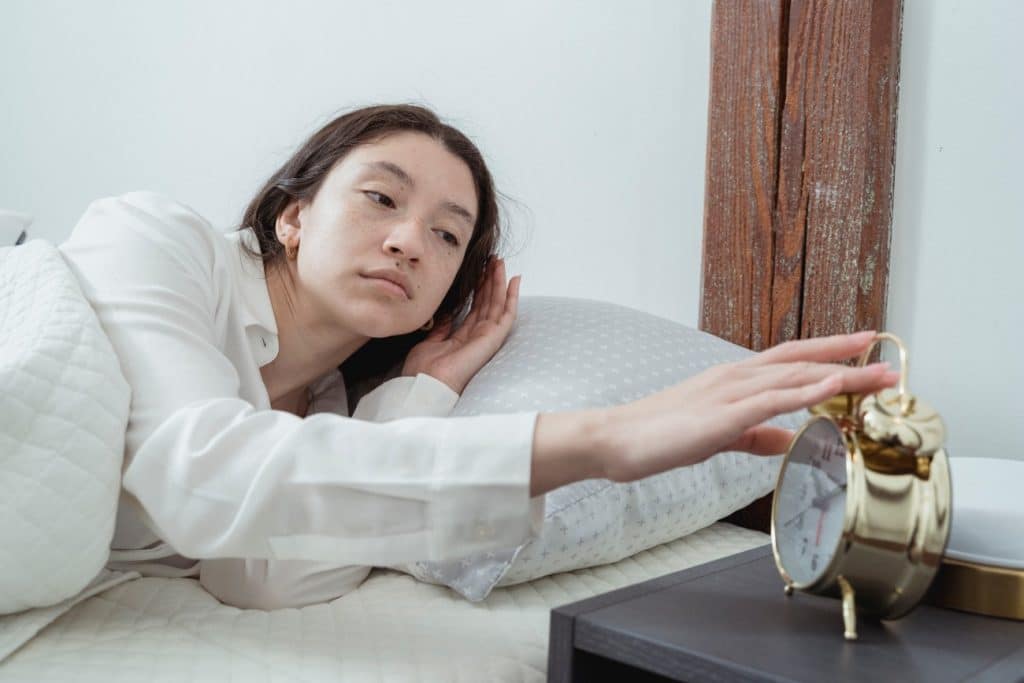The Dalai Lama once said, “Sleep is the best meditation.” The Dalai Lama sure had it right, did he not? How you sleep the night before can make or break your entire day. The best way to ensure you get the rest you need is to incorporate good sleep habits into your daily regimen. Sleep hygiene can improve your sleep health and allow that much-needed and well-deserved rest. This article will discuss insomnia and reasons for sleeplessness, treatments, mindfulness, the impact on recovery, and helpful tips for good sleep hygiene.
Why Is Sleep Hygiene Important?
Following a daily sleep, hygiene regimen improves your sleep by tuning into your biological clock and circadian rhythms. Circadian rhythms encompass your physical, mental, and behavioral activities within a 24-hour cycle.
Chronobiology, or the study of circadian rhythms, includes animals and plants. It tells us that our natural responses are responding to light and dark, explaining why we may be unable to sleep in a lighted room.
Your body consists of an interconnected system. What you do and when you do it have a ripple effect that can positively or negatively impact some biological processes. Practicing good sleep hygiene provides your body clock with the recalibration ability to sync your system and improve its efficiency, aiding in your overall health and well-being.
Insomnia and Its Influence on Your Body and Mind
If you have ever had insomnia, you know it is much more than losing sleep. Temporary insomnia happens to many of us; it is annoying and bothersome, but the body usually corrects itself quickly. However, underlying causes, including physical or health issues, need addressing if your insomnia persists.
Insomnia is widespread and can be associated with mental distress issues, psychosocial impairment, physical illnesses, and various other conditions. Studies reveal that people experiencing sleep issues consult their general practitioner more often than other professionals and usually prefer sleep hygiene education (SHE) instead of medication.
According to the Journal of Family Medicine and Primary Care, chronic insomnia is prevalent in 33% of adults. Risk factors of chronic insomnia encompass age, sex, mental and physical illness, and working other than day shifts. The effects of chronic insomnia may include frequent accidents, memory impairment, absenteeism, and frequent doctor visits. A high risk of depression is the most significant impact of insomnia.
Practicing Good Sleep Hygiene
According to the Centers for Disease Control and Prevention (CDC), you can practice good sleep hygiene in several ways. These include:
- Try to go to bed at the same time each night and get up at the same time each morning, including on the weekends; your body responds to consistency
- Make sure your sleeping space is quiet, dark, relaxing, and at a comfortable temperature
- Remove electronic devices, such as TVs, computers, and smartphones, from the bedroom, or turn them off
- Avoid large meals, caffeine, and alcohol before bedtime
- Get some exercise during the day; being physically active can help you fall asleep more easily at night
Other tips you can incorporate into your sleep-readiness regimen that may assist in providing restful, quality slumber include:
- Yoga can provide relaxation for the mind and body
- Soft music and lighting an hour or two before bed may induce relaxation
- Enjoy a cup of chamomile tea before bed; chamomile tea has a mild sedative effect for inducing sleep and is known to improve sleep quality.
- Mindfulness meditation can give you more cognitive control over your sleep
Mindfulness Meditation and Cognitive-Behavioral Therapy
Cognitive-behavioral therapy (CBT) is a form of psychological treatment effective for various issues, including depression, anxiety, substance use disorders (SUDs), eating disorders, and other mental health concerns. Although CBT is not directly associated with affecting sleep disorders, it may help reduce sleeplessness caused by anxiety, depression, and other CBT-treated issues.
An alternative treatment for sleep disturbances is mindfulness meditation, and it is gaining attention. Mindfulness means paying purposeful engagement in the present moment; it means accepting without judgment.
Studies reveal that clarifying present-moment awareness, instead of dwelling on the past or future, may help transform cognitive patterns and dysfunctional behaviors. Mindfulness meditation targets emotional processes by decreasing cognitive reactivity and promoting an honest reappraisal of conspicuous experiences. Cognitively controlling the emotional reaction to thought may help boost the ability to fall asleep.
Sleep Hygiene and Recovery
If you or a loved one is in recovery, you know the importance of a good night’s sleep. Proper rest gives the mind and the body a better opportunity to heal. Coping with substance abuse or mental health symptoms in early recovery is also more attainable without sleep deprivation.
All facets of recovery work more efficiently with routine and consistency; the same goes for getting the sleep needed to progress through recovery. Everything you do during recovery prepares you for better life and well-being. So get some sleep!
At SoCal Mental Health, we believe that mental health is a part of your well-being. We understand that it takes courage to enter treatment and vigilance to learn and manage symptoms related to mental health and substance use disorders (SUDs). Our programs are designed to help clients manage recovery using planned and defined therapies to aid treatment and recovery. At SoCal Mental Health, we provide evidence-based treatments that help those struggling learn the skills they need to manage everyday life. With those skills comes learning how to get a good night’s rest. Sleep hygiene is crucial to recovery, and we are here to help. Call SoCal Mental Health today at (949) 502-2041.












